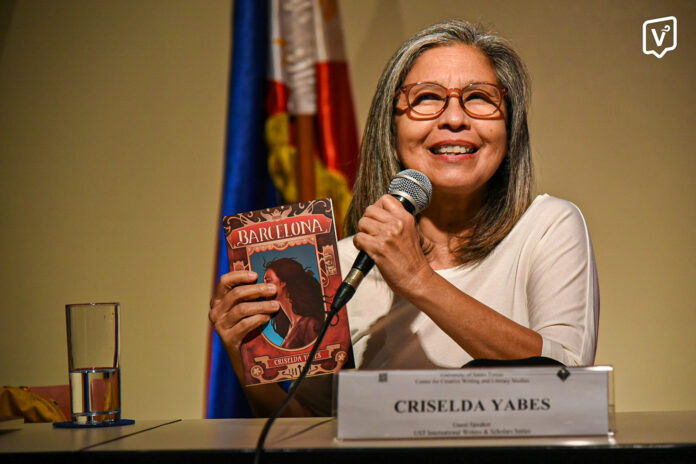
AN award-winning author and journalist discussed the distinctions and similarities between fiction and non-fiction writing in a lecture organized by the UST Center for Creative Writing and Literary Studies (CCWLS) on Jan. 26.
Criselda Yabes, a former Manila correspondent for the Associated Press, underscored the importance of a writer’s instinct regardless of the genre they write in.
“You have to be intuitive–you would know if it’s your story, you would know if you’re meant to write it,” said Yabes in a lecture at the Tanghalang Teresita Quirino of the Benavides Building.
“It’s just knowing yourself and the stories that you have inside you.”
One difference between fiction writing and reporting, according to Yabes, is the leeway the former gives to creativity and time.
Creative writing involves “having the story come to you,” unlike journalism, where you have to get and write the news, the author said.
“[In creative writing], I get to say what I cannot say in writing a news story. I can invent, I can change things, I can change the future, I can change the past,” she said.
In her talk, the author-journalist discussed and read excerpts from her latest book “Barcelona,” a dystopian illustrated novella set in 2050 about a woman who grapples with the drug war in Manila.
The novella incorporates elements adopted from Yabes’s experience in covering the military.
Yabes, who graduated with a journalism degree in 1985, also talked about her experiences covering the EDSA revolution, which she said was her “baptism of fire” but a moment journalists at that time “were very privileged to have seen.”
She is the author of “Sarena’s Story: The Loss of a Kingdom,” which won the UP Centennial Literary Prize for Creative Nonfiction in 2008, and “Crying Mountain, which won the UP Centennial Literary Prize for Fiction in the same year.
Yabes had worked for Reuters, Newsweek, The Washington Post, and The Economist.
Her lecture was part of the CCWLS Visiting International Writers and Scholars Series.













